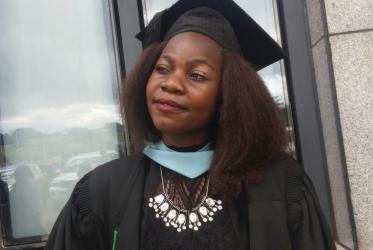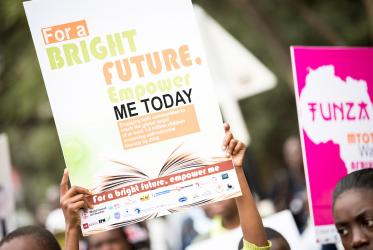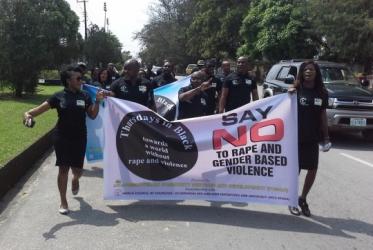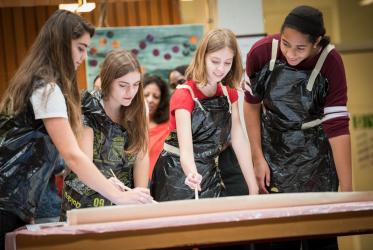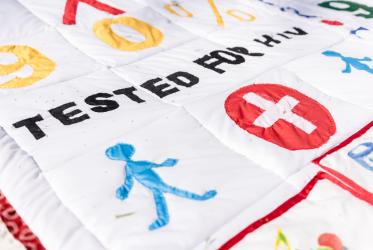Displaying 181 - 200 of 373
In Nigeria, Thursdays in Black is flourishing
26 March 2018
At CSW62, “stories are the heartbeat”
21 March 2018
WCC-EHAIA pioneer receives honorary doctorate
21 March 2018
Conversation on HIV “must continue,” Faith Networking Zone shows
07 December 2017
Re-engineering life forms: Church forum raises concerns
09 November 2017
“God has brought ways of defeating HIV”
31 October 2017
Ugandan Mothers’ Union leader helps overcome HIV
31 October 2017
Responsible agriculture investments theme of WCC session
16 October 2017
Forum strengthens ecumenical commitment to diakonia
12 October 2017
“Good healthcare a right, not a privilege,” says WCC-EAA
11 October 2017
